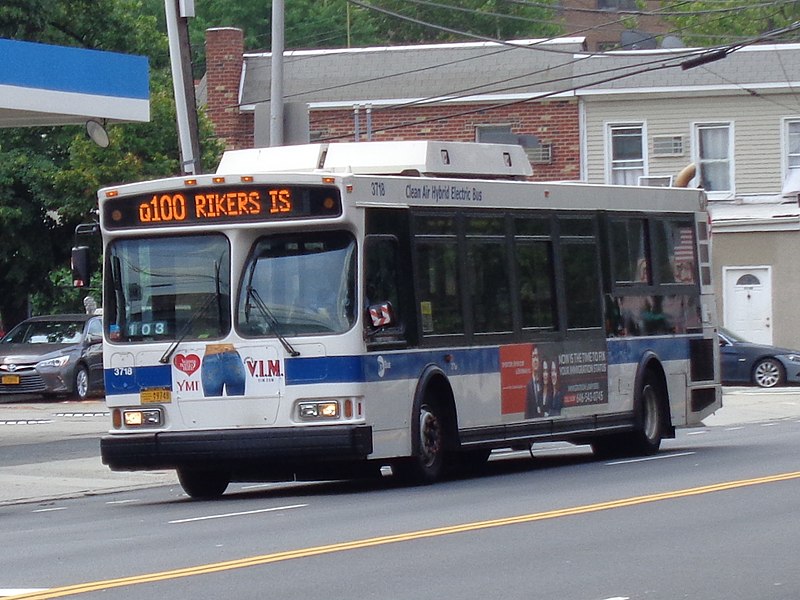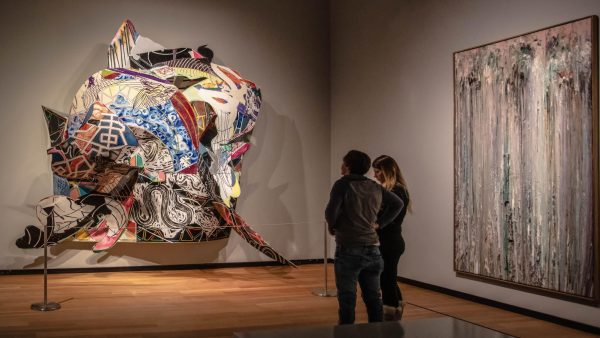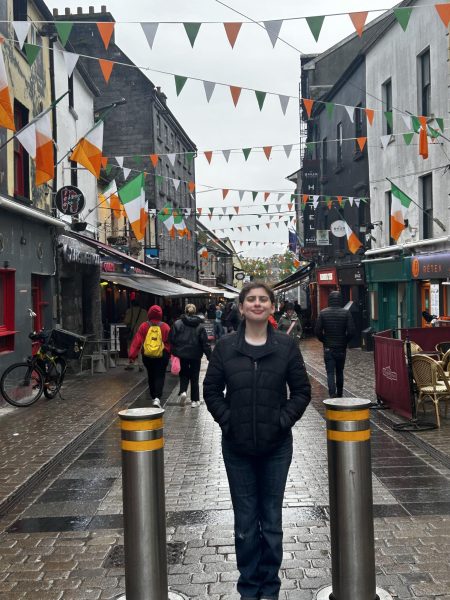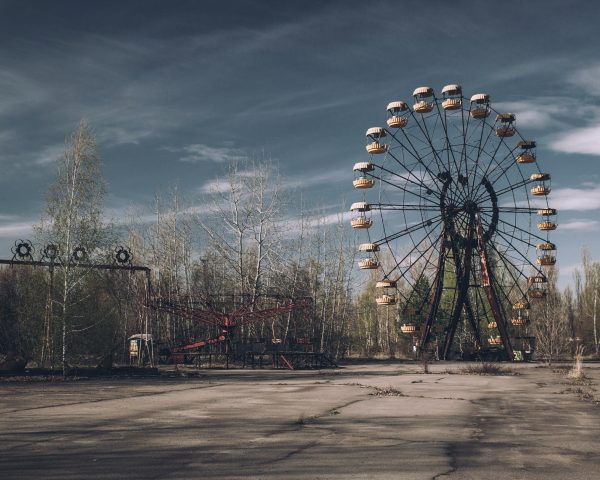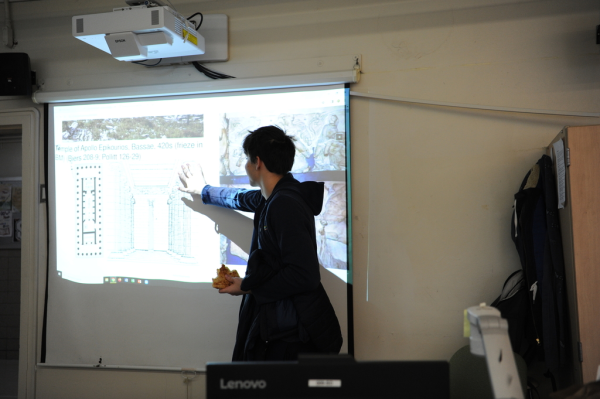The Potential Closure of Rikers Island
An island once rich with an enigmatic history is on the verge of becoming obsolete. Located in between Queens and the Bronx, Rikers Island holds an average of 13,849 detainees in one of the largest jail complexes in America.
Tdorante10, CC BY-SA 4.0
Pictured here is the Q100 bus with a final stop destination of Rikers Island. The bus takes family members to visit incarcerated inmates during visiting hours. The bus is one of the only ways to get to and from Rikers Island jail.
The name ‘Rikers Island’ may seem familiar to many who live in New York, but this island is most definitely not a euphoric paradise. In fact, Rikers Island is no average island; rather, it is one of the country’s largest prison complexes, at 40 acres with a set capacity of 15,000 inmates. Throughout the years, this New York City prison complex also has an enigmatic history and has been subject to scandal.
Rikers Island all starts with the man who originally owned the land in the 17th century, a Dutch immigrant named Abraham Riker, or Rycken. The land was used for multiple purposes during his ownership — it was even a military training base at one point — until the land was sold to the city for $180,000, simply to become a large garbage dump. During the purchase, there was much controversy and contemplation on what to do with crumbling jails on Blackwell Island (now known as Roosevelt Island) and an idea began to turn the Rikers Island into one of the city’s largest jail complexes.
After establishing the island as a prison complex, politicians and city officials figured that they finally solved the problem of the state of correctional facilities in New York. But little did they know, this new island would continuously become home to tragedy and concern after its establishment in 1932. The same year, the island would be home to a steamboat explosion, when the Observation, carrying 150 construction workers to the island, exploded right near the shore.
Just as the public was calming down after the tragic explosion, Rikers did not stop being subject to scandal when a report by the mayor, Fiorello LaGuardia, was released two years later in 1934. He stated that there were “many irregularities and abuses in the construction of Rikers Island Penitentiary” regarding violation of construction contracts and losses to the taxpayers of around two million dollars, all attributed to the Tammany Hall Corruption at the time.
Today, many issues that surrounded the island then still seem to plague the city’s politics and its correctional system now. From dangerous foundational issues to abuse of prisoners, the issues are causing city officials to consider closing Rikers Island down for good by 2027.
The idea of closing down the 415-acre island has been on the table of city officials for years. In fact, a report from October 1, 1979 called Rikers Island Project Working Document encapsulates the state of the prison as “decrepit” and a “dangerous environment for both staff and inmates.” Ideas have been proposed to sell the island, shut it down, and even upgrade the condition of the prison complex.
The executive director of the city’s Legal Aid Society, Archibald Murray, went as far to say “Rikers Island was a mistake; it never should have happened.”
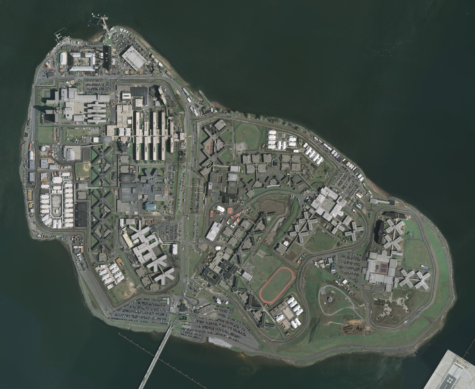
The existing problems coupled with the recent global pandemic have only worsened the state of the island, causing the idea of its shutdown to now become increasingly prevalent. As the ongoing pandemic has reached billions of people worldwide, Rikers Island was no exception.
As of 2021, there have been a total of fifteen casualties in the jail complex, one of the largest mortality rates in any jail in the United States, let alone the largest death toll there in years. The pandemic has not just affected the inmates, but the workers and condition of the prison as well.
Due to COVID-19, many staff members were absent from work due to their sickness, degrading the conditions in the jail, as around 2,000 people were not able to attend to their duties at Rikers on average, per day. Through these absences, some of these officers have been taking advantage of these sick days.
According to The New York Times, the commissioner of the Department of Corrections, Vincent Schiraldi, stated that some were using their sick days as an “unlimited vacation pool.”
The large absence of workers is leaving a horribly unattended jail left in the hands of inmates. Upon further inspection, lawmakers witnessed a “humanitarian crisis,” consisting of unmasked inmates packed into cells, overflowing toilets, and inmates left with no legal representation.
After all of the commotion throughout the years and the problems being exacerbated by the ongoing Coronavirus pandemic, there has been much talk about shutting down this correctional system throughout the years, starting with former Mayor de Blasio’s candidacy. However, many sources state that not much was actually put into place, despite the former mayor’s strong rhetoric regarding his plans regarding the jail. However, the idea seems to have been revisited and reignited by de Blasio’s successor, our current New York City Mayor Eric Adams.
Adams is a retired police officer, and his campaign for the mayoral race focused heavily on crime and safety. This caused a lot of questions to arise among citizens as they realized how his backing of de Blasio’s shutdown plan contradicted his overall campaign, as shutting down one of the largest jail complexes in the United States does not seem to go hand in hand with minimizing crime in the city. However, although Adams wants to get rid of Rikers Island, he wants solitary confinement reinstated, something that de Blasio eliminated during his tenure, as Adams sees solitary confimenent as a viable punishment for violent prisoners.
Getting rid of such an enormous jail facility is no easy feat and one of the more considered options of doing so consists of spreading out the inmates in smaller jails throughout the city. The plan entails that there will be borough-wide jails built across residential areas in the city, which has received a lot of backlash from residents in such communities. Residents have been commenting under local news articles and even starting their own petitions to protest the creation of such jails. Rikers Island has a complicated relationship with the city and the state, as those who violate state laws can be sent to the city jail. As it teeters between both city and state politics, it seems as though it will only make the elimination of the complex more complicated.
According to the New York Times, Governor Kathy Hochul’s office has indicated to city officials that the state would be open to shifting control of two Manhattan prisons to the city to ease problems at Rikers. When asked her opinion on such a plan, Jacqueline Kwan ’22 stated, “I think that smaller jails would be worse, as the situation at Rikers is brutal and traumatic for many inmates. Spreading it would only promote more violence towards inmates.”
The plan to get rid of Rikers Island by 2027 is still in the works. However, the eight billion dollar price tag on the project coupled with the relocation of thousands of inmates makes it seem as though it will take a while before citizens see tangible change in the jail complex. The project also holds many questions for the state and New York City. Kwan states, “The corrections system needs more funding and better resource allocation for things like mental health, or just health in general.” From the plan of creating additional smaller jails, to what it means for the new mayor and his candidacy, the citizens of New York City cannot be sure on what the elimination of the island as a prison complex holds for them in the near future.
The executive director of the city’s Legal Aid Society, Archibald Murray, went as far to say “Rikers Island was a mistake; it never should have happened.”
Soree Park is a Features Section Editor for ‘The Science Survey.’ Through her work editing Features articles and writing her own articles, she has...

